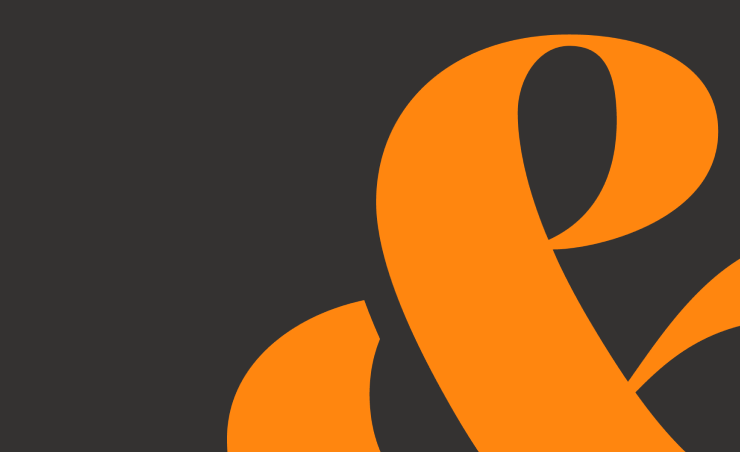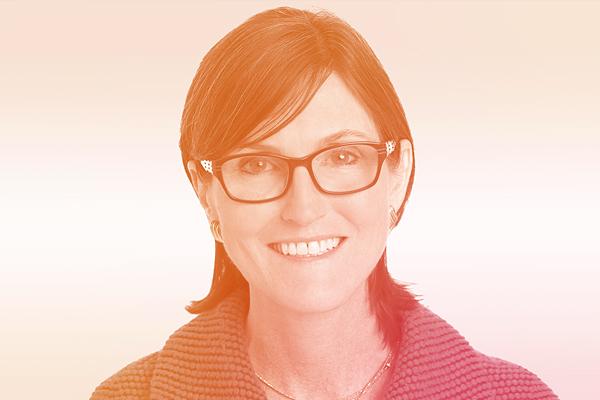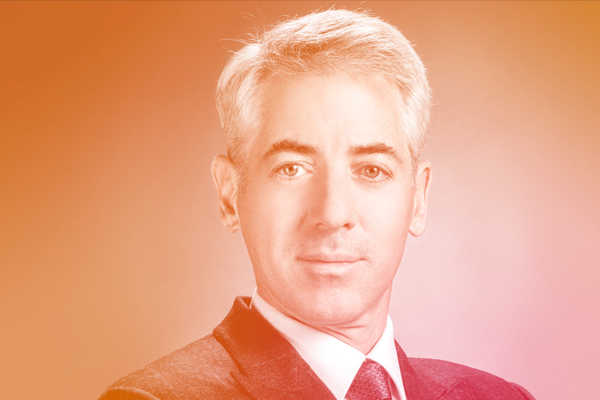
Bill Ackman predicts 2021 will be a rewarding year for the equity market and urged investors to "go long", but the Wall Street legend and Pershing Square founder worries that irrespective of Pfizer's vaccine breakthrough, the US faces a grim winter of coronavirus casualties.
In a week where Australian shares advanced 3.5 per cent and the Dow Jones Industrial Average was on track for a 2.7 per cent return, investors are turning their thoughts to the promise of stability under US President-elect Joe Biden, a gridlocked Washington incapable of policy gambles, and the possibility of inoculating most of the world against COVID-19 by mid- to late-2021.
"You've got low rates, you've got likely stimulus, you could see infrastructure spending, you've got still very well capitalised banks, you've got access to capital. So I think 2021 could be a very, very good year in markets, so go long I would say," Mr Ackman told the Sohn Hearts and Minds investment conference on Friday, via a virtual appearance.
"Eight months of World War II we didn't lose as many people as we did in April 2020."
— Scott Galloway, NYU
However, the coronavirus is "out of control". As much as the vaccine represented a triumph of science, "the problem is I think unsophisticated people will take this announcement as, 'oh, I don't have to worry'. And you want people to be a bit scared," he said.
"It would really suck to get sick and or die when a month or two later you can have a vaccine."
Australia and New Zealand, "you guys know how to manage a virus, and a lot of respect for the way your country's handled this".
The events of the past week have also unleashed what could be the start of a spectacular rotation in markets. Since the Biden-Harris ticket limited Donald Trump to a one-term presidency, and Pfizer showed its COVID-19 hand, bonds have been punished and out-of-luck value stocks have surged on sudden optimism around global growth.
Consumer confidence in Australia has been restored to seven-year highs following the Reserve Bank's rate cuts, the Westpac-Melbourne Institute Index revealed this past week. Property buying intentions are similarly bullish.
The Sohn conference presenters declined to deviate too far from technology, disruption and COVID-19 winners such as Temple & Webster (Regal), Slack (TDM) and Fisher & Paykel (Milford). But blue-chip CSL was pitched as an unlikely "undiscovered" gem by Paradice's David Moberley.
The plasma supply issues it faced as donor visits drop are transitory, and overblown by the market, but create a “rare opportunity” in CSL shares, the fund manager believes.
Mr Moberley described the company as one of the best businesses listed in the Australian market with a management team among the country’s best capital allocators. It has also significant latent value in its asset base and research and development pipeline.
CSL shares were flat at $308.21; the stock traded at a record $341 a share on February 19. It's up 12.3 per cent this year.
The US economy is meanwhile on track for a "very, very good" recovery.
"You've got a more moderate Democrat in the White House, you have the kind of far left of the party that's been neutered a bit by the results of the election," Mr Ackman said. "I mean Nancy Pelosi's expectation was the Democrats would take 20 seats in the House – new seats. Turns out they lost ten."
Ivanka Trump, who Mr Ackman knows personally, is a "very capable" person who will probably run in 2024. But the longer Mr Trump refuses to acknowledge his election loss, the more it will hurt her future prospects, he believes.
"Trump's actually done a lot of good, he's done some harm as well, and he's done it in a way that I think is far from ideal but I do think things like corporate tax reform are long-term good for the country, not just for Wall Street, but for the middle class for the working class etcetera. It helps make the country more competitive, it helps keep businesses here."
Mr Ackman estimated $US2.5 billion ($3.5 billion) to $US3 trillion of savings have been built up because "people aren't eating out, they're not going on vacation, they're not driving and by the way, when you keep someone locked down, their next move when they can actually feel safe is going to be to go on a vacation, to go drinking, to go to dinner, to go to a show".
"It's probably the single greatest time in history to open a restaurant," he suggested. Mr Ackman was interviewed by former ASX director and Manikay Partners founder Shane Finemore (Manikay closed earlier this year).
This past week, software, e-commerce and technology stocks have sold off as investors decide they no longer need to pay a premium for high-growth businesses to protect their portfolios from economic weakness.
NYU professor and author Scott Galloway told the Sohn event that the US economy has accelerated from dysfunctional economy to a dystopian one, and COVID-19 has delivered a greater toll on lives per day than any previous crisis in history.
"Eight months of World War II we didn't lose as many people as we did in April 2020," he said.
Professor Galloway was critical of the deployment of stimulus and the way winners and losers have been carved up. "We're effectively kneecapping what have been the biggest source of jobs and growth," being small businesses.
"Capitalism on the way up, and socialism on the way down – it has a word –cronyism."
It's a claim only a few can make, but Berkshire Hathaway was somewhat of a disappointing investment for Pershing: "we have probably lost more money in Berkshire than anyone in the world," Mr Ackman said of exiting his position.
He also called Warren Buffett his "unofficial mentor", who he has "enormous respect" for.
But going into the downturn, Mr Ackman thought Mr Buffett would be more opportunistic. It turns out, he wasn't. "Let's not sell because Buffett's going to take advantage," he recalls saying as the Berkshire chairman was doing TV appearances saying volatility was good. "'World wars, Vietnam, you know COVID's no different'. We were expecting Buffett to be super aggressive as markets came in, and we were surprised that he was not more so."

Pershing lost about 10 per cent on the position.
Mr Ackman has raised $US4 billion via a Special Purpose Acquisition Company or SPAC with financial data business Bloomberg and accommodation platform Airbnb among those linked with an Ackman play that would in effect take those businesses public.
He has outgrown punishing short activism. This year, he is better known for a big bet that was wildly successful. After famously warning that hell was coming in March, he confirmed that he made $US2.6 billion in a complex but fast trade that profited as credit markets tanked.
"I've called probably four Sunday night investment team meetings in the history of the firm and I called one [February 23]," he said. "Here's how it's going to play economically: markets are going to crash, credit markets are going to crash, and on that call we started talking about hedging possibilities."
Pershing decided to play in the credit markets. "We like stuff for a long time that has only gone one way," he explained. "We decided to put on $US25 billion of notional short." By the time the strategy was fully deployed, Mr Ackman said, Pershing owned 26 per cent of the credit default swaps on the investment grade index in the US, and 23 per cent in Europe.
"On the 8th [of March] we were up $US2.6 billion."

This article was originally posted on The Australian Financial Review here.
Licensed by Copyright Agency. You must not copy this work without permission.


In yet another fantastic episode with Equity Mates, first-time conference manager Qiao Ma chats with the guys about her incredible first investment, the investment philosophy of core manager Cooper Investors and the investment thesis behind her conference pitch, Shenzhou International.


NYU Stern School of Business Professor, serial entrepreneur and business podcaster Scott Galloway has blasted “sociopathic” big tech and the US government, while outlining the profound implications of COVID-19 for the US economy and its big players.


Australian investors will be very familiar with potential gains that can be created from innovations in the payment system, think Afterpay. In China, the mobile payments market is both enormous and advanced in technical terms, that’s where Yeahka Ltd operates — a top stock choice from Beeneet Kothari of New York-based Tekne Capital Management at the SOHN Hearts & Minds Investment Conference 2020.


Leading US fund manager Bill Ackman has predicted that 2021 will be a “very good” year for the US sharemarket, with a combination of low interest rates, fiscal stimulus and a new president who will not introduce radical policies.


The rise of telehealth and online medicine as a result of the COVID-19 pandemic has been behind the recommendation of New York based fund manager Cathie Wood, for US based telemedicine and virtual health care company Teladoc Health as her stock pick for the 2020 Australian Sohn Hearts & Minds Investment Conference.


When Bill Ackman realised coronavirus was about to run rife in the West he knew he had to do something fast to protect the $US10bn ($14bn) of assets managed by Pershing Square, much of it in restaurant brands that were vulnerable to the economic lockdowns he saw coming. Rather than sell stock, he opted to hedge via credit default swaps.


Halpert's “digital decolonisation” thesis is that entrepreneurs, companies, governments and consumers in developing markets are reclaiming their digital economies and ecosystems from multinationals, and developing indigenous solutions for local problems.


Billionaire investor Bill Ackman bemoaned his losing bet on Warren Buffett’s Berkshire Hathaway during a virtual appearance at the Sohn Hearts & Minds investment conference this week, according to the Australian Financial Review.


Global stocks exposed to the technology boom, whose performance was partially fuelled by the coronavirus crisis, were the big winners from the calls made by top investment minds at the Sohn Hearts & Minds Investment Conference last year.


Leading US fund manager Bill Ackman has predicted that 2021 will be a “very good” year for the US sharemarket, with a combination of low interest rates, fiscal stimulus and a new president who will not introduce radical policies.


Online retail stocks have become the small cap investment story of 2020, according to Todd Guyot, a portfolio manager with Regal’s $320m Australian Small Companies Fund. “We have done well out of the whole online theme of late,” says Guyot, who will be tipping a stock at the fifth annual Sohn Hearts & Minds conference on Friday.


When Bill Ackman realised coronavirus was about to run rife in the West he knew he had to do something fast to protect the $US10bn ($14bn) of assets managed by Pershing Square, much of it in restaurant brands that were vulnerable to the economic lockdowns he saw coming. Rather than sell stock, he opted to hedge via credit default swaps.


Tekne Capital Management portfolio manager Beeneet Kothari says US technology stocks continue to look attractive given their strong earnings outlook and dominant positioning in what he sees as a multi-decade reshaping of economies and business fuelled by COVID-19.


The shock suspension of the Ant Group initial public offering, slated to be the biggest float in history, has left investors reeling, but it could be back up and running within weeks, according to Tribeca Investment Partners’ Jun Bei Liu.


US tech giants are on track: not just to soar through the pandemic, but to structurally lock in their competitive edge well beyond COVID-19. What is more, there will be a tsunami of reallocated capital across the economy, creating huge winners and losers that investors should get ahead of if they don’t want to miss out.


One of the fiercest critics of 'Big Tech', author and academic Scott Galloway, has admitted his bearish call on Afterpay was wrong and warned that America's internet giants are poised to consolidate power following the coronavirus pandemic.


Scott Galloway, outspoken academic and expert on big tech, says "Jedi mind tricks" and "consensual hallucination" are responsible for some huge market valuations, and warns Silicon Valley giants will entrench their dominance in the post-pandemic world.


It has gone down in Wall Street folklore as one of the greatest trades in history – a $US27 million ($37.8 million) bet during the market meltdown in March that returned $US2.6 billion in the space of three weeks. And the mastermind behind it, New York hedge fund titan Bill Ackman, is now bracing for another bout of turbulence.


Wall Street legend Bill Ackman says megacap stocks such as Starbucks will come out of COVID-19 with a bigger moat and a market dominance like never before, and no election outcome will make a difference to the plight of wrecked small businesses.


A little under a year ago, Cathie Wood named Tesla as her top stock pick for 2020. Speaking at the Sohn Hearts & Minds Investment Leaders Conference in Sydney last November, Ms Wood, who runs US technology-focused investment firm Ark Invest, said her bearish case was that the stock price would double by 2024. It hit that milestone less than three months later.


Rory Lucas may have one of the best jobs in finance. As the chief investment officer of Hearts & Minds Investments (HM1), it's his duty to oversee the $780 million portfolio of the best ideas from some of the world's top investors.


Legendary Wall Street investor Bill Ackman will headline the 2020 Sohn Hearts & Minds investment leaders conference this year in a major coup for the event that has raised more than $20 million dollars for medical research since its inception in 2016.